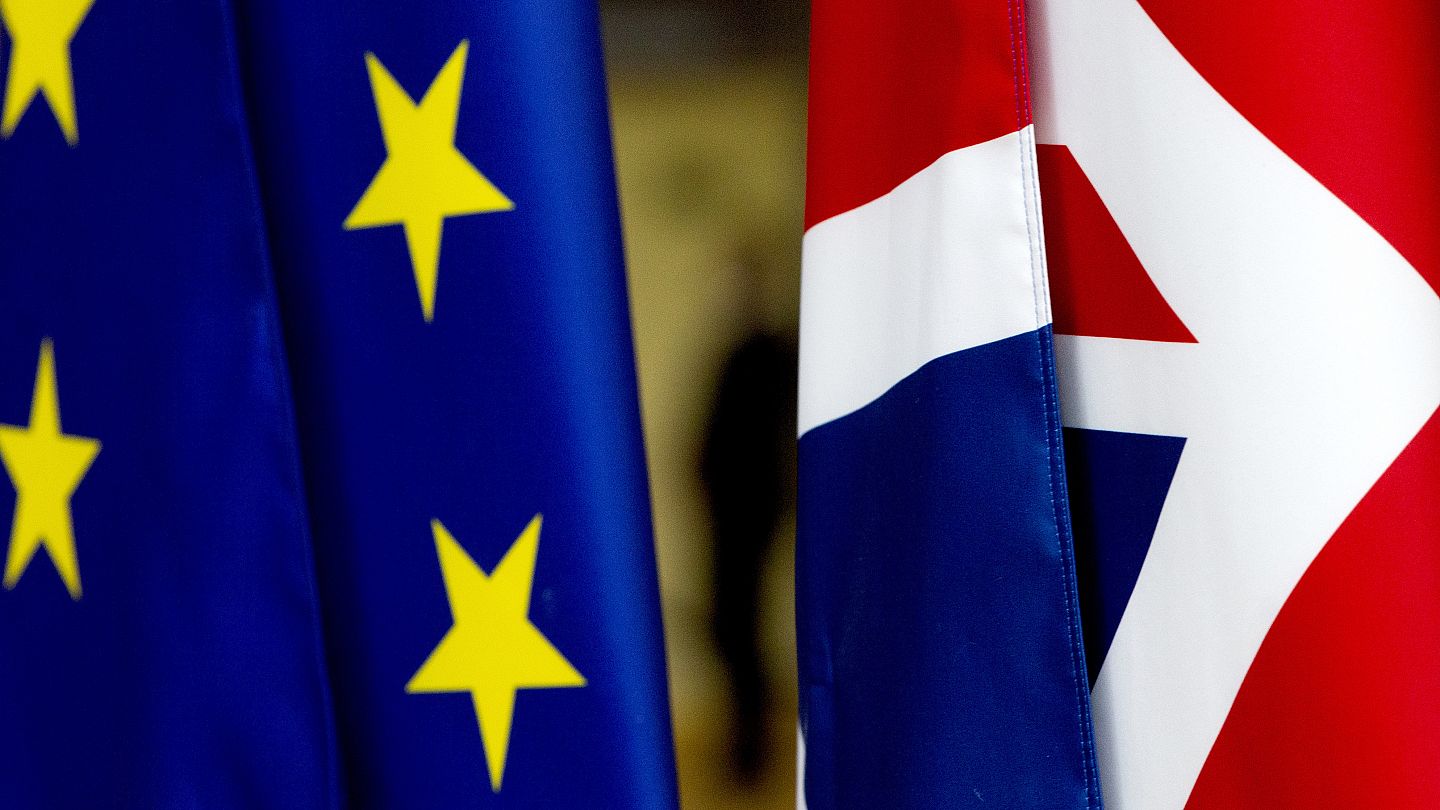Brexit, the monumental decision by the United Kingdom to leave the European Union, has left an indelible mark on both sides. The Long-Term Impact of Brexit on the European Union and the United Kingdom has been a subject of intense scrutiny and speculation. From economic shifts to diplomatic complexities, the consequences of this decision are multi-faceted and far-reaching. This article aims to dissect the various dimensions of these effects, offering insights and analyses from different perspectives.
Economic Transformations: Trade Dynamics and Market Adjustments
The Long-Term Impact of Brexit on the European Union and the United Kingdom is most palpable in economics. The separation has necessitated significant trade relationships, tariffs, and supply chains adjustments. Both entities have grappled with reconfiguring their trading networks and economic dependencies.
Amidst these changes, new opportunities and challenges have emerged. The European Union has had to recalibrate its trading partnerships, seeking to maintain its economic prowess while managing the absence of a key member. Conversely, the United Kingdom has forged independent trade agreements marked by negotiation complexities and potential gains.
Political Realignments: Diplomatic Negotiations and Sovereignty
Brexit has also triggered a cascade of political realignments, redefining the diplomatic landscape of the region. The Long-Term Impact of Brexit on the European Union and the United Kingdom includes shifts in power dynamics, with the EU reassessing its internal cohesion and the UK reaffirming its sovereignty.
As the United Kingdom reclaims control over its policies and regulations, it faces the challenge of balancing autonomy with maintaining positive relationships with its European neighbors. Simultaneously, the European Union navigates internal discussions about integration, demonstrating its resilience while adapting to the evolving geopolitical realities.
Social Fabric: Cultural Exchange and Identity
Beyond economics and politics, the Long-Term Impact of Brexit on the European Union and the United Kingdom has seeped into the societal fabric. Cultural exchange, once facilitated by the ease of movement within the EU, now requires more meticulous planning. Citizens on both sides have had to grapple with changes to their mobility and the sense of shared identity fostered by EU membership.
These adjustments have spurred conversations about national identity, immigration, and the definition of belonging. They have also ignited debates about the role of supranational organizations in shaping cultural connections.
Regulatory Landscapes: Legal Frameworks and Governance
Brexit’s influence extends to the regulatory front, where legal frameworks and governance structures have been profoundly impacted. The Long-Term Impact of Brexit on the European Union and the United Kingdom encompasses the need for new regulatory arrangements and standards.
From product certifications to data protection, the UK’s departure has required both parties to establish protocols that align with their respective goals and obligations. These changes have ripple effects across industries, influencing how businesses operate and consumers are protected.
Environmental Concerns: Sustainability and Collaborative Efforts
Environmental policies and collaborations have also felt the repercussions of Brexit. The Long-Term Impact of Brexit on the European Union and the United Kingdom encompasses the challenges of maintaining collaborative efforts on climate change, pollution control, and conservation.
The UK’s exit from the EU’s environmental agreements has prompted reflections on the continuity of shared initiatives. Meanwhile, the EU has had to reassess its approach to environmental governance in the absence of one of its key members.
Educational Exchanges: Research and Academic Partnerships
The educational landscape has yet to be immune to the Long-Term Impact of Brexit on the European Union and the United Kingdom. Research collaborations, student exchanges, and academic partnerships have encountered disruptions due to changing visa regulations and funding structures.
This shift has prompted introspection about the future of educational exchanges and the role of international cooperation in advancing knowledge and innovation.
Financial Services: Market Access and Regulatory Equivalence
One of the most critical aspects of the Long-Term Impact of Brexit on the European Union and the United Kingdom is the financial sector. London’s position as a global financial hub has been challenged by the need to establish new agreements for market access and regulatory equivalence.
The financial industry’s transformation has spurred debates about the future landscape of financial services in Europe and the implications for economic stability and growth.
Healthcare Collaboration: Medical Research and Patient Care
Healthcare collaboration and medical research have also been affected by the Long-Term Impact of Brexit on the European Union and the United Kingdom. The separation has necessitated the reevaluation of cross-border healthcare provisions, affecting patient care, medical research funding, and pharmaceutical regulations.
Both entities must navigate the complexities of ensuring the continuation of critical medical collaborations and advancements.
Security Dynamics: Intelligence Sharing and Law Enforcement
Security cooperation between the European Union and the United Kingdom has transformed post-Brexit. The Long-Term Impact of Brexit on the European Union and the United Kingdom encompasses changes to intelligence sharing, law enforcement coordination, and counter-terrorism efforts.
The shift has raised questions about the effectiveness of security partnerships and the broader implications for regional stability.
Agriculture and Fisheries: Trade Agreements and Resource Management
Agriculture and fisheries, vital sectors for the European Union and the United Kingdom, have experienced trade agreements and resource management shifts. The Long-Term Impact of Brexit on the European Union and the United Kingdom has led to negotiations on access to waters, quotas, and standards.
These changes affect both regions’ food security, sustainability, and economic livelihoods.
Innovation and Research Funding: R&D Collaborations and Grants
The realm of innovation and research funding has been shaped by the Long-Term Impact of Brexit on the European Union and the United Kingdom. Collaborations in research and development and access to research grants have been subject to renegotiation and reevaluation.
This transformation prompts considerations about the future of scientific advancements and technological breakthroughs in a post-Brexit landscape.
Transport and Logistics: Cross-Border Movements and Infrastructure
The Long-Term Impact of Brexit on the European Union and the United Kingdom has extended to transport and logistics. Cross-border movements of goods and people, as well as infrastructure investments, have been influenced by changing regulations and customs procedures.
This shift affects supply chain efficiency, transportation costs, and connectivity.
Social Services: Immigration Policies and Welfare Systems
The alteration of immigration policies and welfare systems is an integral aspect of the Long-Term Impact of Brexit on the European Union and the United Kingdom. The UK’s departure from the EU has prompted the reexamination of social services for citizens and migrants alike.
These changes pose questions about inclusivity, access to services, and the broader implications for societal well-being.

Energy Cooperation: Cross-Border Energy Trade and Sustainability
The Long-Term Impact of Brexit on the European Union and the United Kingdom have reshaped energy cooperation and cross-border energy trade. The energy sector faces challenges maintaining collaborative efforts for sustainable energy production and distribution.
Both entities must address questions about resource sharing, regulatory alignment, and the transition to renewable energy sources.
Tourism and Hospitality: Travel Regulations and Economic Impact
Tourism and hospitality have encountered shifts in travel regulations and economic impact due to the Long-Term Impact of Brexit on the European Union and the United Kingdom. Changes in visa requirements and border controls have affected the tourism industry’s ability to attract visitors and generate revenue.
These transformations prompt discussions about the resilience of the tourism sector and strategies for promoting cross-border travel.
Investment and Capital Flows: Investor Confidence and Market Volatility
The Long-Term Impact of Brexit on the European Union and the United Kingdom have influenced investment and capital flows. Uncertainties surrounding trade agreements, regulations, and economic stability have prompted investor confidence and market volatility shifts.
These changes pose challenges and opportunities for both regions’ economic growth and financial stability.
Legal Jurisdiction: Dispute Resolution and Cross-Border Agreements
The alteration of legal jurisdiction is crucial to the Long-Term Impact of Brexit on the European Union and the United Kingdom. Dispute resolution mechanisms and cross-border agreements have been subject to renegotiation and clarification.
This transformation prompts considerations about enforcing legal rights, contractual obligations, and harmonizing legal frameworks.

